Natasha Abrahart suicide: Staff 'did not ask questions' of student
- Published
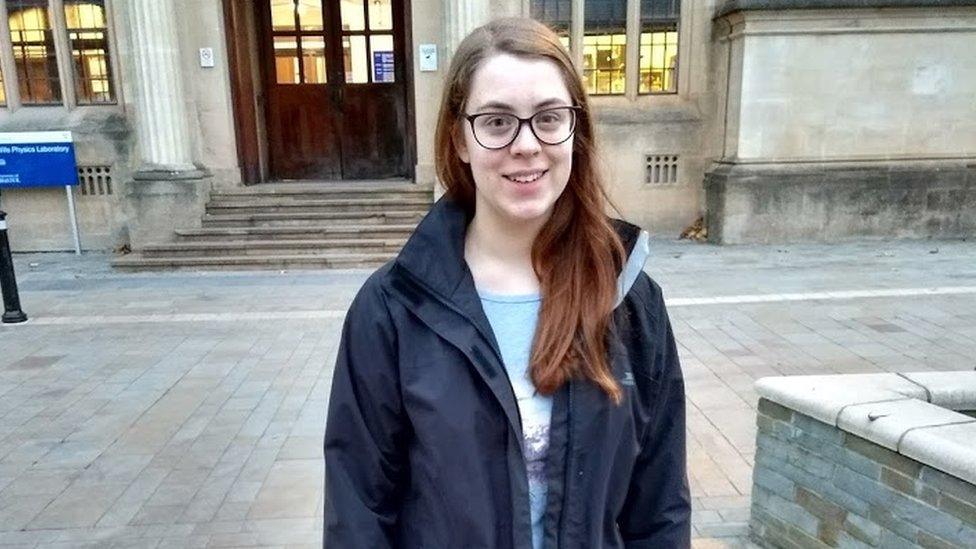
The court has heard Natasha Abrahart did not engage with tutors or support services
University staff who had contact with a suicidal student did not ask questions or follow up emails, a court has heard.
Natasha Abrahart, 20, was in her second year at the University of Bristol when she took her own life in April 2018.
Her family is taking civil action against the university on the grounds it did not make adjustments based on her social anxiety disorder.
Bristol County Court heard changes had since been made to the university's disability services.
Miss Abrahart was studying physics when she was diagnosed with chronic social anxiety in February 2018.
Robert and Margaret Abrahart, from West Bridgford, Nottinghamshire, have accused the university of failing to make adjustments in the course for their daughter and discriminating against her as a disabled student under the Equality Act.
The court previously heard she suffered with "debilitating shyness" and did not attend laboratory interviews and oral assessments as part of her course.
On the day she was found dead she was due to speak at a presentation in front of fellow students and staff in a large lecture theatre.
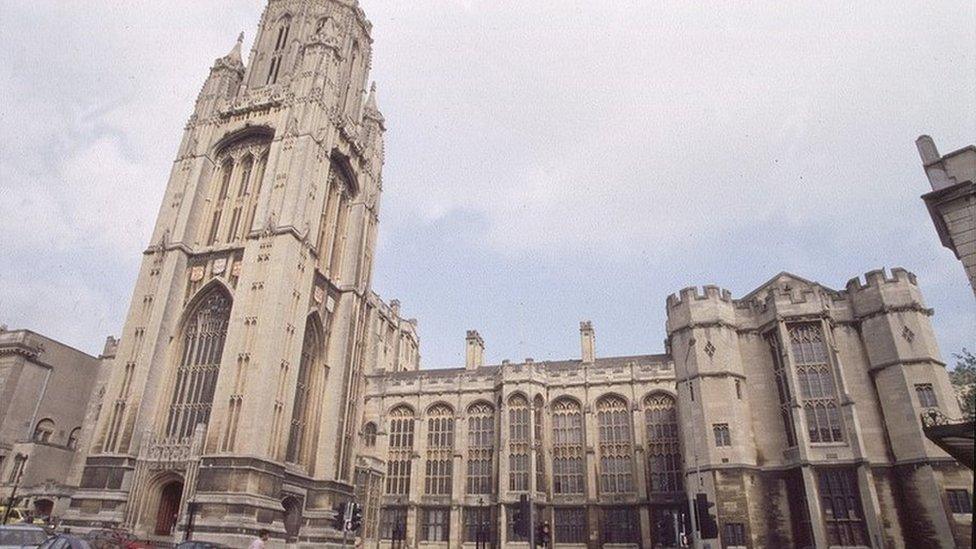
The University of Bristol said changes had been made to services since Miss Abrahart's death
The second day of the case heard from student administrator for the School of Physics, Barbara Perks.
She said she had emailed and spoken to Miss Abrahart about her struggles with the oral elements of the course and engaging with her personal tutor.
Ms Perks said she suggested the student could have pre-scripted answers for the lab interviews, and would not have to speak in the group presentation if she could show her contribution to the work.
"My role in this circumstance was passing people that need help to people that are better qualified," she said.
"I would want to make sure that Natasha was very well supported."
'No prying'
She said she accompanied Ms Abrahart to a GP appointment at her request and emailed support services on her behalf.
Jamie Burton QC, representing the family, said: "During this period you didn't pry, you didn't ask any questions, but you said Natasha was completely silent."
Ms Perks replied: "Even though I was taking her to the doctor I thought that there was probably very little reason for me to start asking questions so I kept conversation as light as possible."
Mr Burton said it was "remarkable" she did not mention Miss Abrahart's previous suicide attempts to the wellbeing support services or senior lecturers.
"You are the only person, other than Rajan [her friend], that knew Natasha had attempted suicide," he added.
"You're the only person that goes with her to a doctor's appointment, which is clearly not in your job description, and you didn't tell anyone about this really significant development?"
He asked Ms Perks whether she had enough training to deal with the situation.
"I don't know what else I could have done. It was very hard for her to open the gates," added Ms Perks.
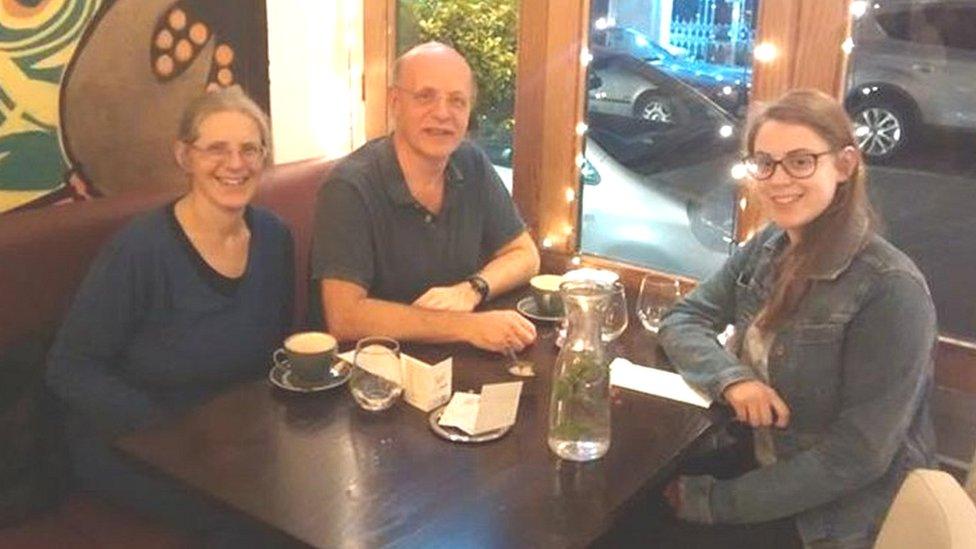
Robert and Margaret Abrahart said their daughter was extremely shy from a young age
Karen Hocking, head of disability services at the university, said they would rarely discuss adjustments through a third party if a student did not engage with them directly.
"We would always want the student to be involved or give consent for a parent to speak to us," she said.
Mr Burton said Miss Abrahart had been "nervous" about contacting the service to ask for help so Ms Perks had emailed on her behalf.
However, he said, when the service invited Miss Abrahart for an appointment, she did not reply, adding: "Do you think this single email was adequate?"
Ms Hocking agreed it was "regrettable" the team would not routinely follow up on emails and therefore no further action was taken.
She said that process had since changed and now more emails would be sent to students and a different approach taken if they knew Miss Abrahart was at risk of self-harm.
The case continues.
If you have been affected by any of the issues in this story, you can visit the BBC's Action Line.

Follow BBC East Midlands on Facebook, external, Twitter, external, or Instagram, external. Send your story ideas to eastmidsnews@bbc.co.uk, external.
- Published1 March 2022
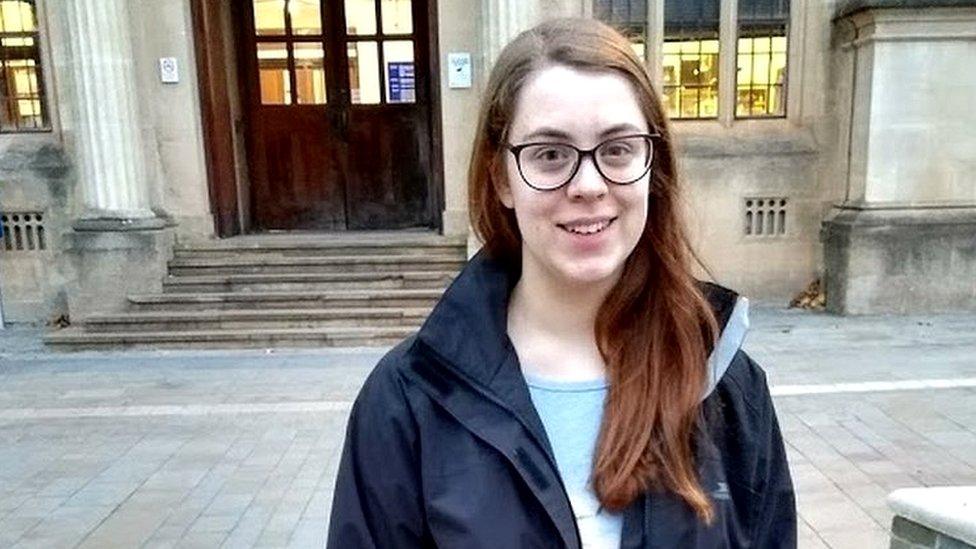
- Published28 February 2022

- Published20 July 2020

- Published21 May 2019
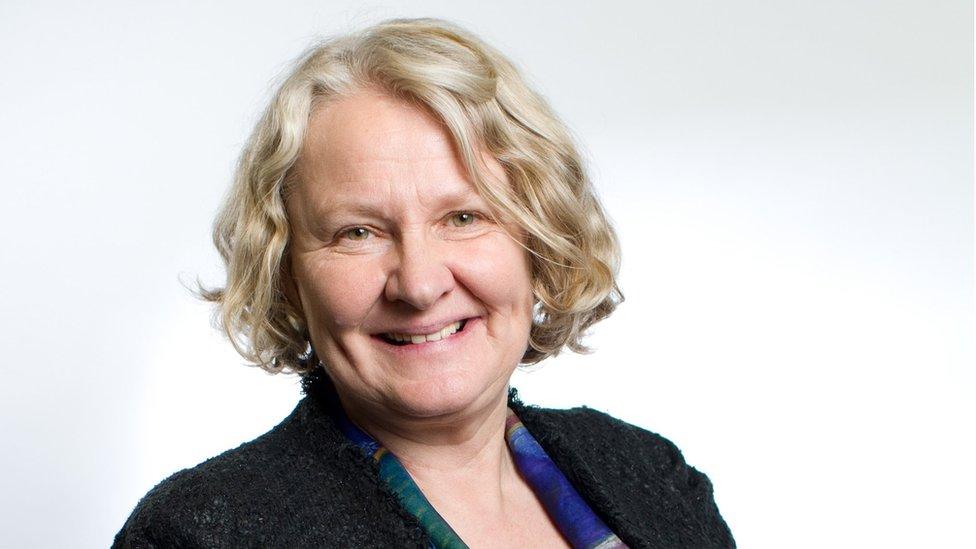
- Published16 May 2019
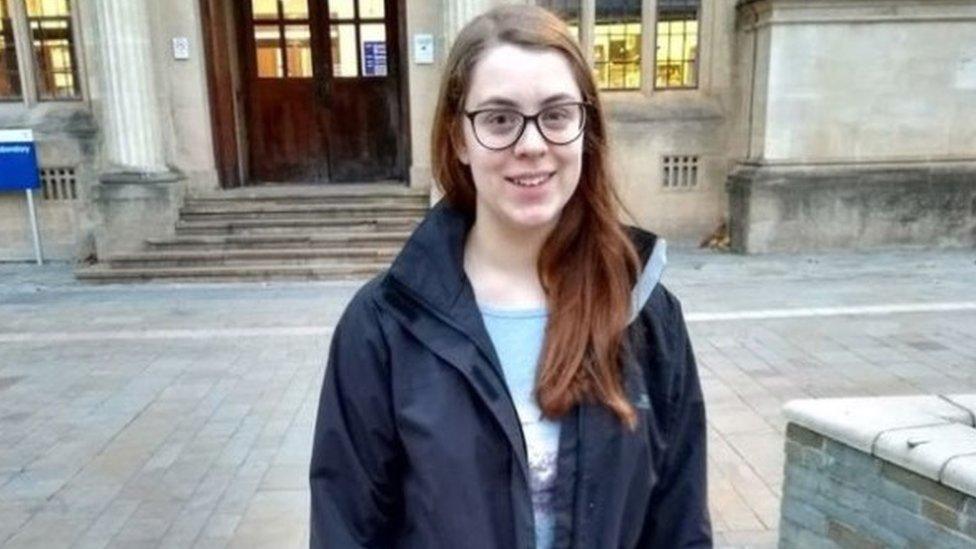
- Published14 May 2019
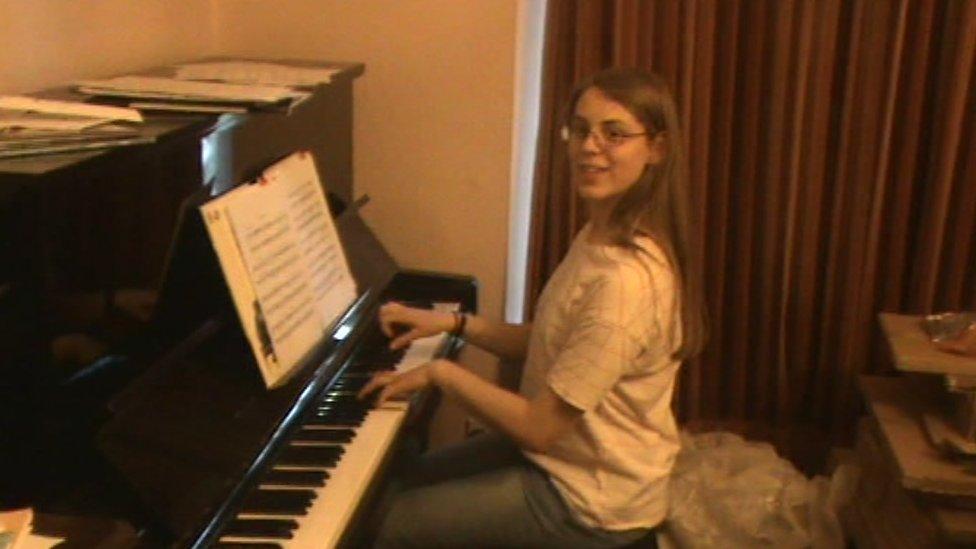
- Published13 May 2019
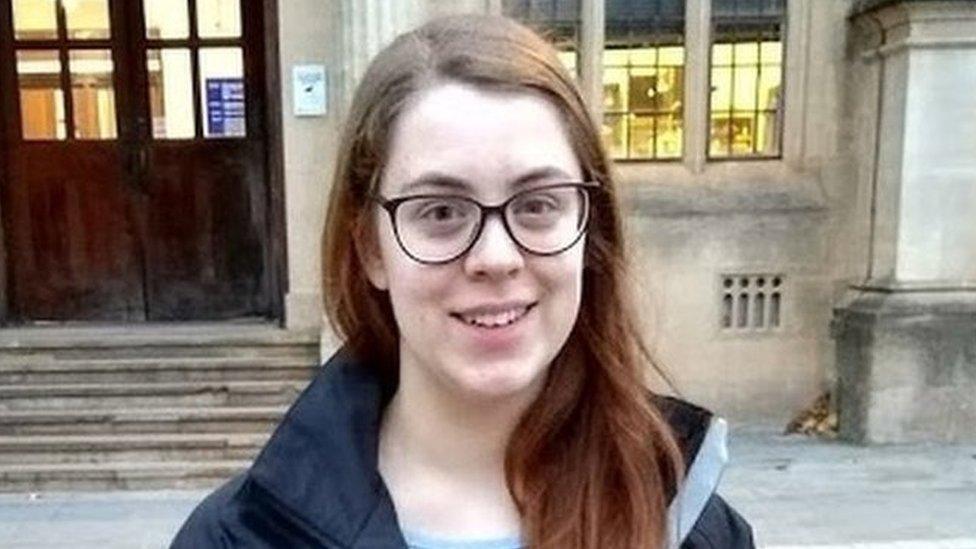
- Published29 October 2018
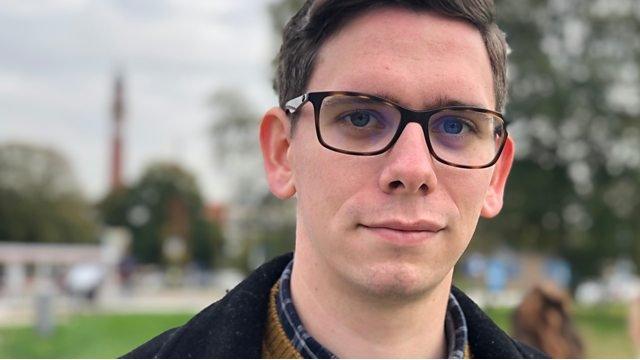
- Published24 November 2016
